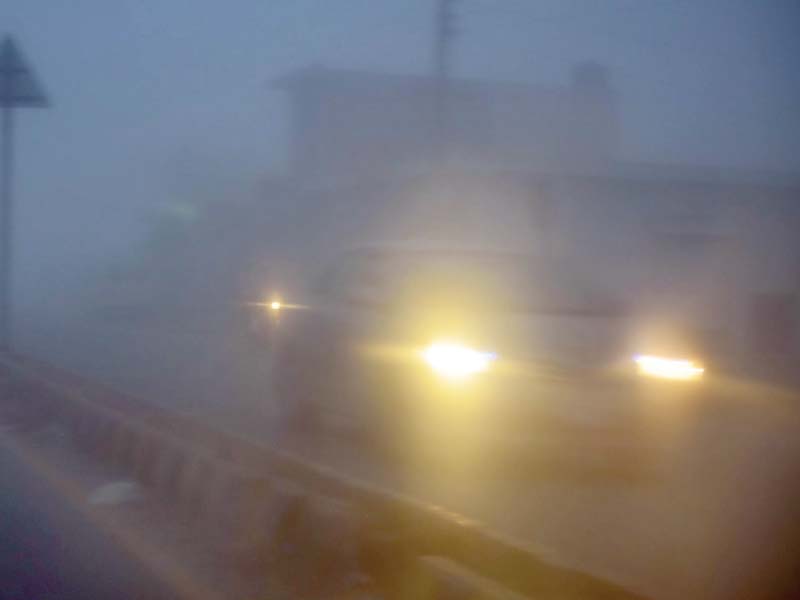
“Seven days past and the smog is not clearing, we want to know why,” said Senate Functional Committee on Human Rights Chairman Senator Mustafa Nawaz Khokhar.
Smog is adversely affecting the health and daily lives of people in Islamabad, Lahore and other cities hit by the phenomenon, he said chairing the meeting of the committee at the Parliament House on Monday.
MoCC officials said that Islamabad’s environment was damaged due to rising number of factories and vehicles. They informed the Senate panel that besides the 0.7 million vehicles registered in the Islamabad Capital Territory (ICT) around 0.1 million enter and exit daily. The emissions from these vehicles make smog more poisonous.
The committee decided to summon representatives of automobile sector and industries ministry to explain the claim of MoCC officials that emissions from substandard oil were adding to the blanket of smog.
The meeting discussed at length the issue of ecological and aquatic effects of oil refineries working in the country and government’s policy to tackle the said issues.
MoCC, petroleum, provincial environment and transport departments and representatives of oil refineries briefed the committee.
The meeting was attended among others by senators Muhammad Usman Khan Kakar, Dr Mehr Taj Roughani, Keshoo Bai, Barrister Muhammad Ali Khan Saif.
MoCC officials said that according to reports around 128,000 deaths occur annually directly or indirectly due to climate change and children being weak in fighting organ diseases are the most affected ones.
“Almost 9% of our GDP is affected due to climate change affects resulting in low yields of crops and more expenditure on health,” MoCC official said.
They said that 43% pollution in Pakistan is due to low grade oil being imported and used by transport industry followed by energy sector. In Pakistan Euro-2 standard is applied for engine oils while the world has gone to Euro-6 technology.
At this, Petroleum Ministry Additional Secretary Dr Tanveer Qureshi said there was a need to import at least Euro-4 standard oil. He said consultation with provinces was necessary to control pollution.
“We have five oil refineries which need upgrading,” Qureshi said. The additional secretary said that the country was importing 60% of its lubricant oils, “we should switch to Euro-4 standard for engine oil instead of Euro-2 being imported currently.”
There needs to be strong coordination between federation and provinces and the standards should be uniform nationwide.
“Country’s five oil refineries are still primitive and at infancy stage, our oil has high magnesium and sulphur content which are injurious to health,” Qureshi said.
The last refining sector policy came in 1997 and since then no upgraded framework has emerged, however, the ministry has from time to time issued regulations and directives to the refineries regarding technology upgrade and usage.
The Senate panel was informed that going to Euro-4 or Euro-5 would be counterproductive unless vehicles were also upgraded and fit with regular inspections. Tail end emissions as well as fuel quality need to be considered simultaneously.
The committee directed all the relevant departments to bring to the committee written responses and recommendations on the issue so that informed discussions can be held and subsequent actions in respect of legislation and policy can be proposed.
Published in The Express Tribune, December 31st, 2019.







1732436825-01732688207-0/BeFunk_§_]__-(47)1732436825-01732688207-0.jpg)

1732688687-5/Copy-of-Untitled-(95)1732688687-5-270x192.webp)







COMMENTS
Comments are moderated and generally will be posted if they are on-topic and not abusive.
For more information, please see our Comments FAQ